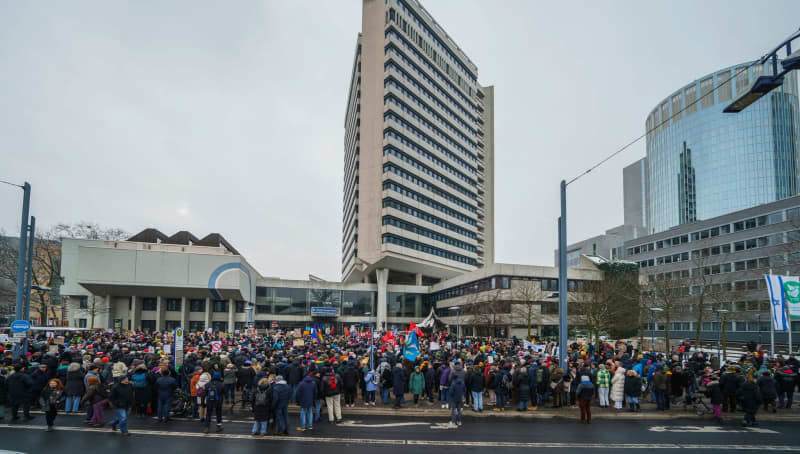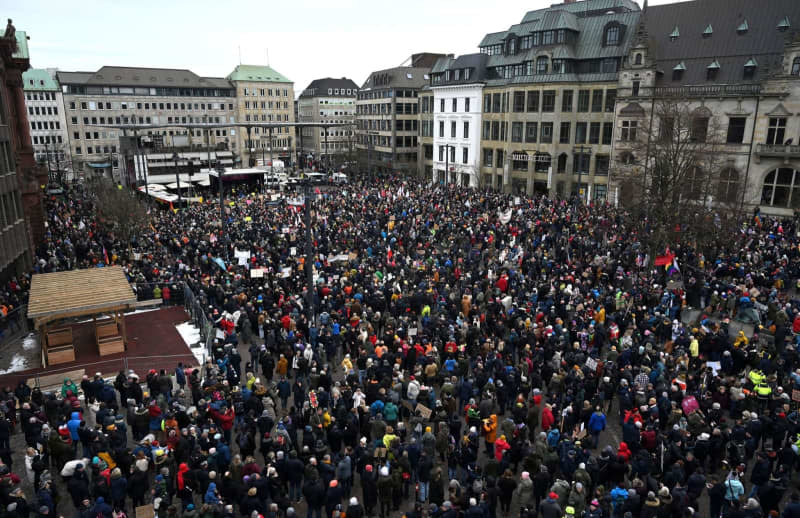Tens of thousands expected to protest against Germany's far-right

- Oops!Something went wrong.Please try again later.
Following a day full of mass protests, tens of thousands of people are again expected to take to Germany's streets on Sunday to rally against the far-right Alternative for Germany (AfD) party and its anti-immigrant stance.
Police in Munich are expecting up to 25,000 participants while organizers of a rally in Cologne put the number of estimated demonstrators at some 10,000. Further protests are expected in several German cities, including Cottbus, Dresden and Chemnitz in the east.
But the largest protest is likely to be in the capital Berlin, where an alliance of different organizations has called on people to gather in front of the Bundestag, or lower house of parliament, from 4 pm (1500 GMT).
While police are only expecting 1,000 participants, past demonstrations have far exceeded initial estimates and Berlin is home to a very active protest scene.
Germany has been swept by protests for over a week following the release of an investigative report which revealed that AfD members had attended a meeting of far-right extremists in November.
At the meeting in Potsdam outside Berlin, participants discussed plans to repatriate asylum seekers and migrants deemed not assimilated enough, even those with German passports.
The report by investigative outlet Correctiv published on January 10 has caused an uproar in Germany, where there is mounting dread among mainstream political parties about the surge in public support for the AfD.
The party is riding high in the polls of three former East German states that hold regional elections later this year.
At the Potsdam meeting, far-right extremists discussed topics like "remigration," a term frequently used in far-right circles as a euphemism for the expulsion of immigrants and minorities.
Anti-AfD demonstrations have already drawn huge numbers of people. At least 300,000 people joined protests on Saturday, according to counts by the police and organizers, with roughly 35,000 people attending rallies in Frankfurt and Hanover alone.
Vice Chancellor Robert Habeck has called the demonstrations as an encouraging sign for democracy.
"Democracy lives from the people who stand up for it," Habeck told the Augsburger Allgemeine newspaper.
Katrin Göring-Eckardt, a senior Green Party lawmaker from the eastern state of Thuringia, wrote on X (formerly Twitter) on Saturday night that she was particularly pleased with the crowds in parts of the former East Germany, such as Leipzig, Erfurt and Dresden.
"Everywhere in the East, people are on the streets for the democracy we fought for in 1989," she wrote. "Encouraging!"
Foreign Minister Annalena Baerbock, speaking at a conference of her Green Party on Sunday, said "we must stand up for democracy with all our strength."
She praised the growing protest against the far-right, especially in Germany's smaller and medium-sized cities.
"That is the strength of our country," said Baerbock.


